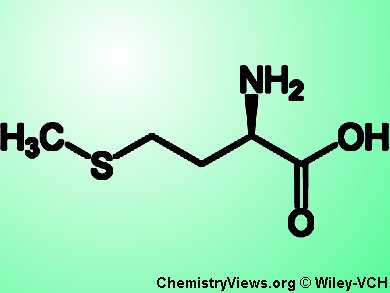Methionine (Met) is an essential, proteogenic amino acid and an intermediate in the biosynthesis of many physiologically important compounds, such as cysteine and phospholipids. It derivative S-adenosyl methionine (SAM) also serves as a methyl donor in pivotal one carbon metabolic pathways in the liver. Impaired function of one-carbon metabolism causes molecular alterations that compromise cellular homeostasis and trigger pathological states, such as the nonalcoholic fatty liver disease (NAFLD).
Igor Pogribny, National Center for Toxicological Research (NCTR), Jefferson, USA, and colleagues tested the impact of met-deficient, but also of met-supplemented diet on mice. The control was fed a met-adequate diet. Analysis of the livers showed for both experimental diets altered expression of one-carbon and lipid metabolism genes, as well as lipid accumulation, especially in mice fed with the met-deficient diet. Here markers of oxidative and endoplasmic reticulum (ER) stress are also elevated.
These pathological events show that a met supplemented or met deficient diet can induce molecular abnormalities in the liver, associated with the development of NAFLD in humans and experimental animals.
- Effect of methionine-deficient and methionine-supplemented diets on the hepatic one-carbon and lipid metabolism in mice,
Alexandre Ferro Aissa, Volodymyr Tryndyak, Aline de Conti, Stepan Melnyk, Tarsila Daysy Ursula Hermogenes Gomes, Maria Lourdes Pires Bianchi, S. Jill James, Frederick A. Beland, Lusania Maria Greggi Antunes, Igor P. Pogribny,
Molec. Nutr. Food Res. 2014.
DOI: 10.1002/mnfr.201300726


